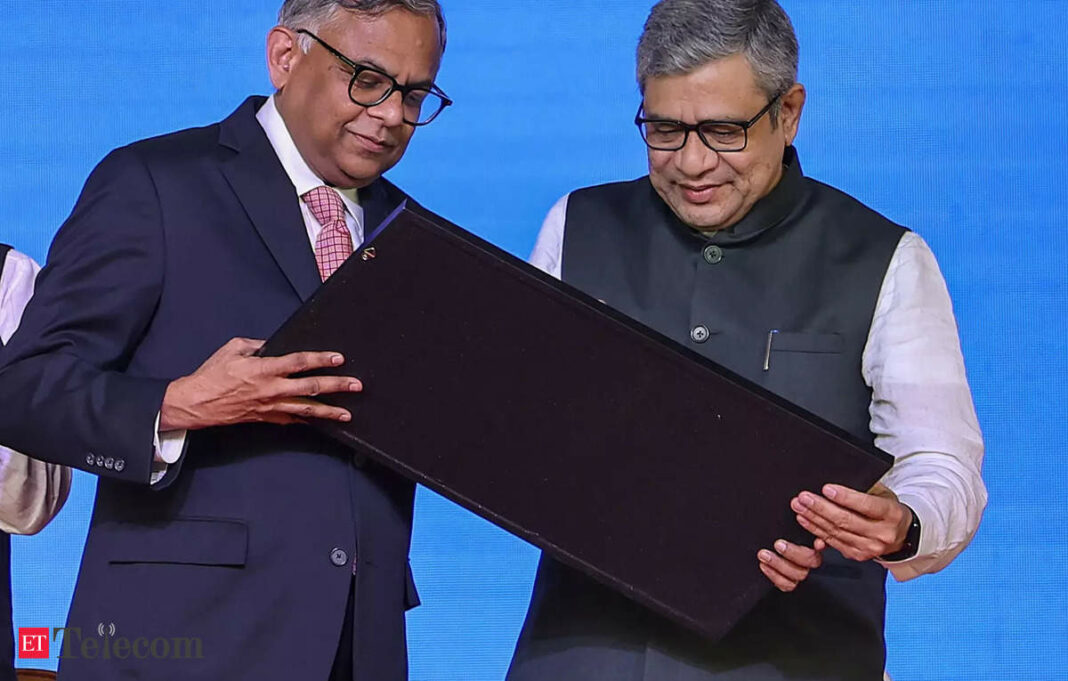In Short:
Tata Electronics will start producing semiconductors in India by December 2026, with plans to be among the world’s top five chip ecosystems by 2029. The company will have two plants, one in Dholera and another in Assam, generating over 27,000 jobs. Prime Minister Narendra Modi laid the foundation for these projects, which aim to produce chips for various sectors like EVs, defense, and consumer electronics.
Tata Electronics to Roll Out First Set of Semiconductors in 2026
The first set of semiconductors will start rolling out from Tata Electronics‘ plant in December 2026, as announced by union minister for communications and IT Ashwini Vaishnaw on Wednesday.
Key Details
During the ground-breaking ceremony of Tata Group and CG Power chip plants, Vaishnaw mentioned that India is set to become one of the top five chip ecosystems globally by 2029.
He also highlighted that the Tata Dholera plant will manufacture chips in 28, 50, and 55 nanometer node, with the first chip from the Dholera plant expected in December 2026 and from the Micron plant by December 2024.
Investment and Production Capacity
The total investment for the three chip plants, including two units by Tata Electronics and one by CG Power, amounts to Rs 1.26 lakh crore.
The high-tech chip manufacturing plant of Tata Electronics at Dholera will have the capacity to produce 50,000 wafers per month, involving an investment of Rs 91,000 crore with the government contributing 50% of the capital expenditure.
Target Segments
The chips produced by these plants will cater to various sectors including electric vehicles, telecom, defense, automotive, consumer electronics, and power electronics.
Job Creation and Initiatives
The Tata Assam facility, built with an investment of Rs 27,000 crore, is expected to generate over 27,000 direct and indirect jobs in the region, being the first semiconductor unit in the Northeast.
Furthermore, the Tata Semiconductor Assembly and Test (TSAT) in Assam will focus on developing indigenous advanced semiconductor packaging technologies with a capacity of 48 million chips per day.
Future Outlook
The efforts to establish a semiconductor industry in India have been ongoing since 1962, with the recent ground-breaking ceremony marking a significant milestone.
Tata Sons Chairman N Chandrasekaran mentioned that the semiconductor projects by Tata Electronics will create 50,000 direct and indirect jobs, with production at the Assam plant expected to commence before the Dholera plant.





